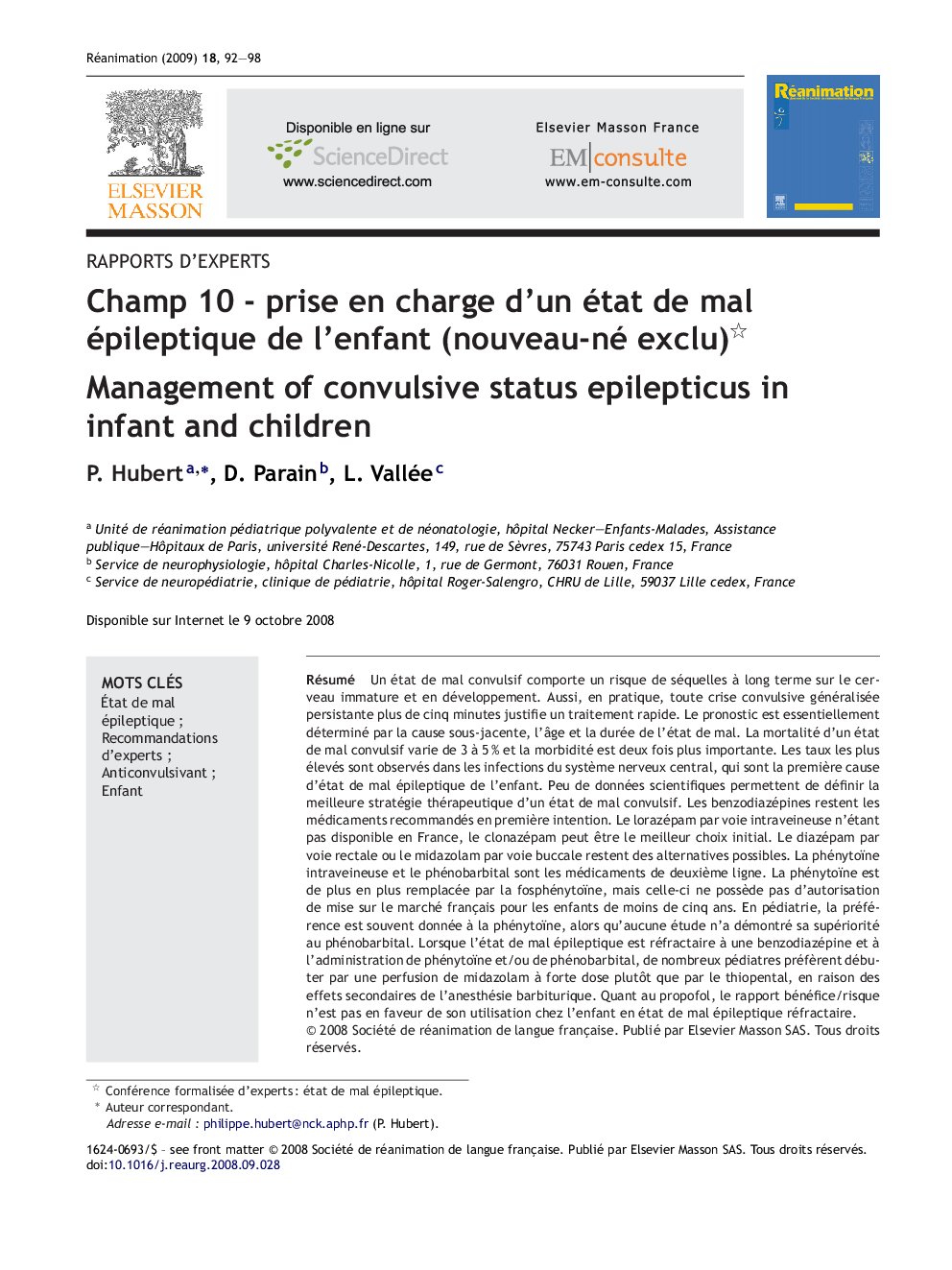| Article ID | Journal | Published Year | Pages | File Type |
|---|---|---|---|---|
| 2613672 | Réanimation | 2009 | 7 Pages |
Abstract
Convulsive status epilepticus in childhood is a life-threatening condition with serious risk of neurological sequelae, thus constituting a medical emergency. Clinical and experimental data suggest that prolonged seizures may have immediate and long-term adverse consequences on the immature and developing brain. So the child who presents with a continuous generalized convulsive seizure lasting greater than five minutes should be promptly treated. Outcome is mainly determined by the underlying aetiology, age, and duration of status epilepticus. In children, mortality resulting from status epilepticus ranges from 3 to 5% and morbidity is two times. Mortality and morbidity are highest with status epilepticus if associated with central nervous system infections, which is the most important cause of status epilepticus. There is only a few evidence-based data to guide management decisions regarding children with status epilepticus. Immediate goals are the stabilization of airways, breathing, and circulation as well as termination of seizures. Benzodiazepines remain the first-line drugs recommended for prompt termination of seizures. As intravenous lorazepam is not available in France, we suggest clonazepam as the best choice for initial therapy. Rectal diazepam or buccal midazolam remain important options. Intravenous phenytoin/fosphenytoin and phenobarbital are the second-line drugs. Phenytoin is being increasingly substituted by fosphenytoin, but paediatric data are scarce and fosphenytoin is not authorized for use in France below five years old. In children, phenytoin is often preferred to phenobarbital, even though no comparative studies have demonstrated a better efficacy. To manage status epilepticus refractory to benzodiazepine and administration of phenytoin and/or phenobarbital, many paediatricians prefer high-dose midazolam infusion rather than thiopental to minimize serious side effects from barbiturate anaesthesia. There is no benefit/risk ratio to support the use of propofol in children with refractory status epilepticus.
Keywords
Related Topics
Health Sciences
Medicine and Dentistry
Emergency Medicine
Authors
P. Hubert, D. Parain, L. Vallée,
